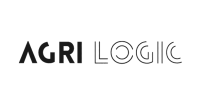The coffee sector has invested heavily in sustainability for decades, recognizing that we must ensure our ability to meet rising demand for coffee while also increasing the prosperity and well-being of producers and conserving nature. In 2014, leaders in the sector came together to develop a vision for coffee sustainability that resulted in Vision 2020: a call for improved alignment within the sector on our sustainability efforts.
In late 2015 the Global Coffee Platform, the Specialty Coffee Association of America and the Sustainable Coffee Challenge jointly recognized the need to inventory existing efforts to make coffee a sustainable agricultural product, understand who is doing what sort of work, where the investments are going and how we can better understand and share our impacts and experiences.
The report compiles information on the sustainability initiatives of more than 80 stakeholders throughout the coffee sector. The Catalogue sheds light on sustainability efforts currently underway, and how actors in the sector can collaborate to make coffee the world’s first fully sustainable agricultural product. It includes a mapping of aims, interventions and investment.
Several key findings from report include:
- Across the coffee industry, more than $350 million is being invested annually in sustainability programs. Collective efforts are also enabling the industry to reach 350,000 farmers each year – a figure that has nearly doubled in the last 15 years.
- Certification is a tool commonly used to increase consumer awareness, social inclusiveness, traceability and assurance and incentives.
- The report estimates that transitioning the entire sector to sustainable production is possible, but at the current rate of investment, it would require a total investment of $4.1 billion to achieve and would take until 2045 to incorporate all coffee producers.


